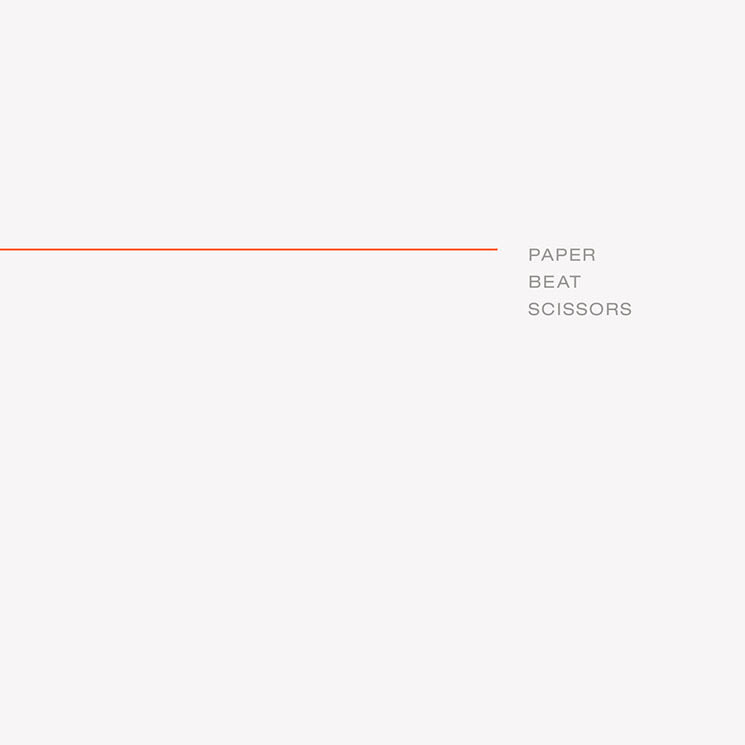On their third album, Parallel Line, Montreal-based orchestral-pop project Paper Beat Scissors explore the tender fragility of human connection. On these 11 songs, mastermind Tim Crabtree chronicles friendships and romances in their fraught fluidity: how they crack and how they sometimes heal.
On "Gun Shy" Crabtree intones, in a sweetly half-broken voice so vulnerable it threatens to drift into the milky ether, "See now, all that comes off / When we pour out the venom we've known." It's a melancholic number that, with the help of a backing violin, morphs into geography of singular sadness, showing how slow-forming resentments can crystallize into chasms of emotional wreckage.
Pain shows up a lot on Parallel Line, but the resonant, sunrise guitars and dipping violins save it from feeling resentful. The orchestration, paired with Crabtree's vocals, creates a feeling of something softer, something meditative and perhaps even hopeful.
On the final track, "Little Sun," a lurching kick drum, shy piano and a sawing violin frame Crabtree's wounded voice. After four-and-a-half minutes, the song threatens to fade out — but then builds itself back together for Crabtree to whisper-sing, "My heart, my heart, my heart." It's a fitting closer — vulnerable and earnest without slipping into sappiness — that foregrounds the star of the mournfully mellifluous Parallel Line: Crabtree's tender, battered, mending-as-we-listen heart.
(Forward Music Group)On "Gun Shy" Crabtree intones, in a sweetly half-broken voice so vulnerable it threatens to drift into the milky ether, "See now, all that comes off / When we pour out the venom we've known." It's a melancholic number that, with the help of a backing violin, morphs into geography of singular sadness, showing how slow-forming resentments can crystallize into chasms of emotional wreckage.
Pain shows up a lot on Parallel Line, but the resonant, sunrise guitars and dipping violins save it from feeling resentful. The orchestration, paired with Crabtree's vocals, creates a feeling of something softer, something meditative and perhaps even hopeful.
On the final track, "Little Sun," a lurching kick drum, shy piano and a sawing violin frame Crabtree's wounded voice. After four-and-a-half minutes, the song threatens to fade out — but then builds itself back together for Crabtree to whisper-sing, "My heart, my heart, my heart." It's a fitting closer — vulnerable and earnest without slipping into sappiness — that foregrounds the star of the mournfully mellifluous Parallel Line: Crabtree's tender, battered, mending-as-we-listen heart.
